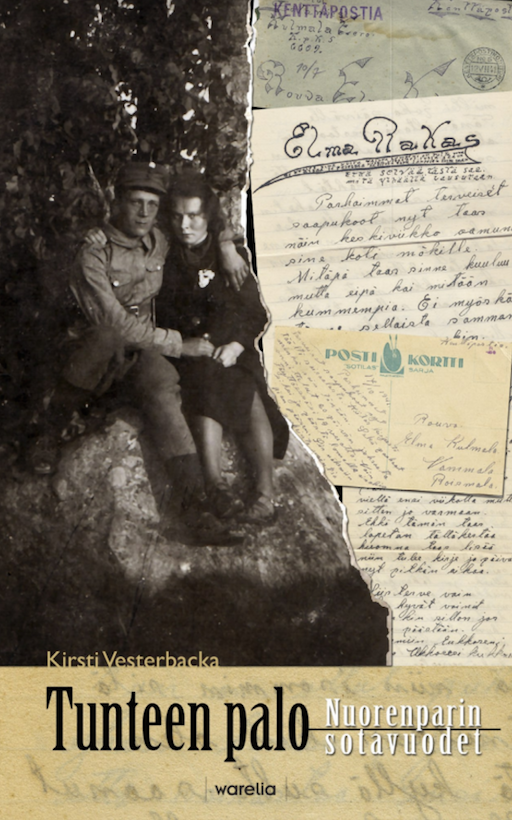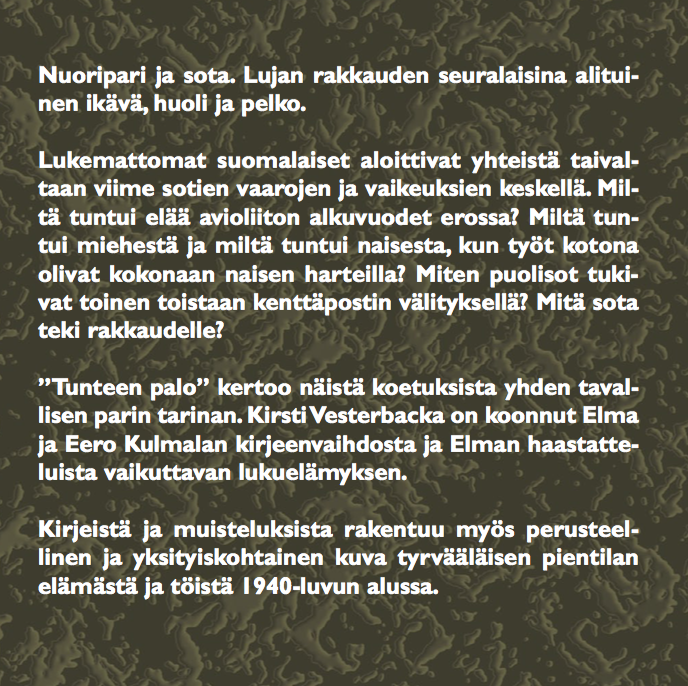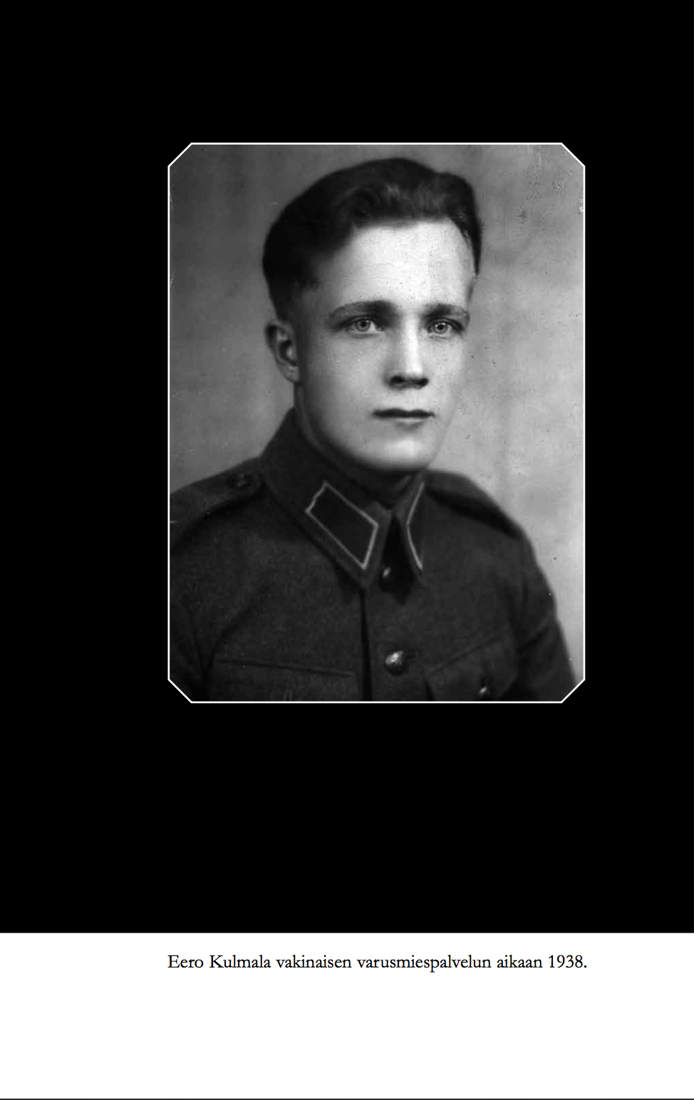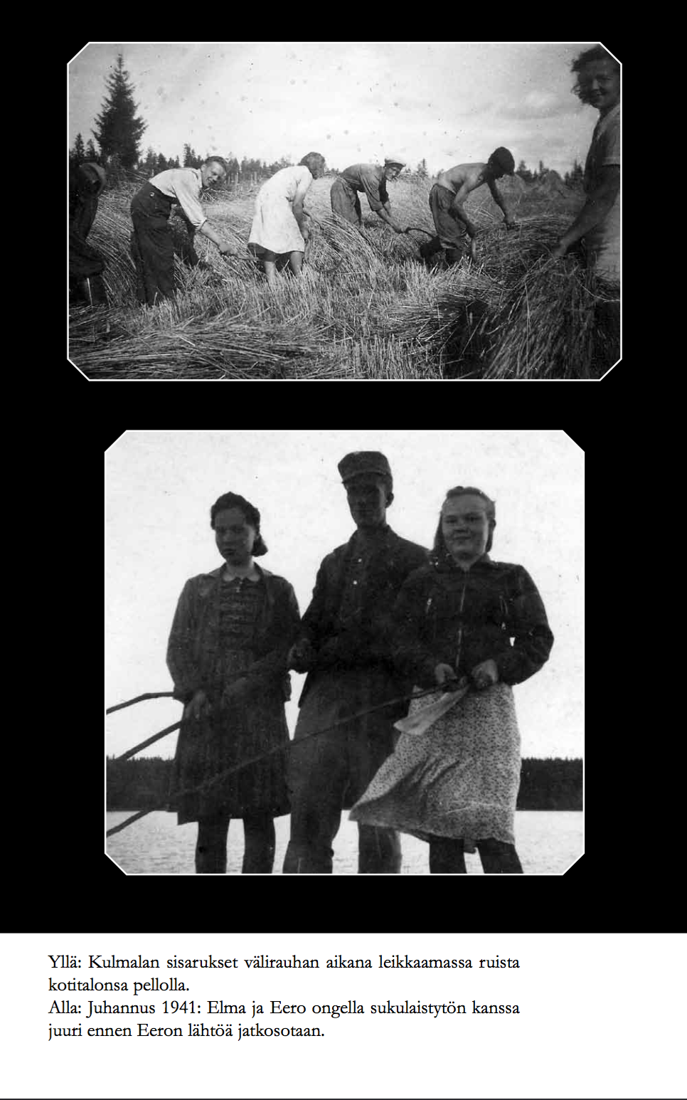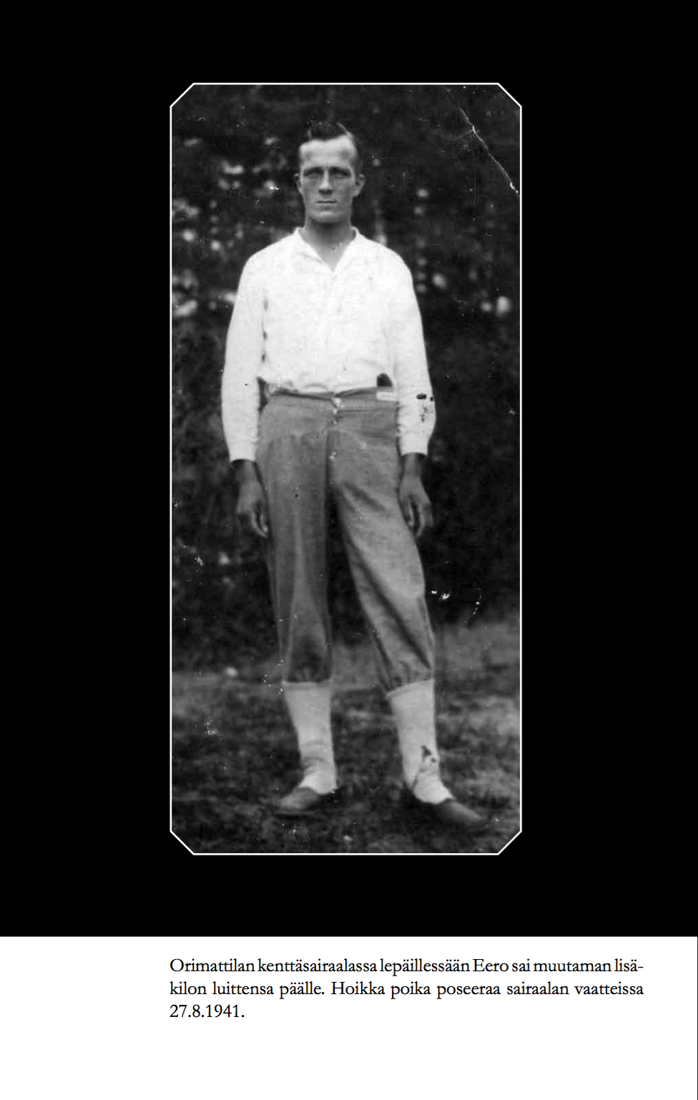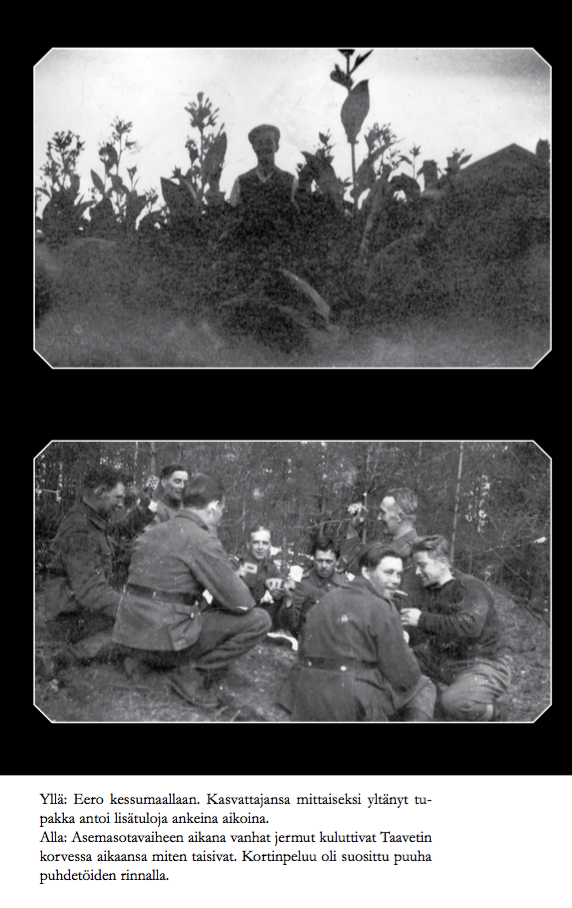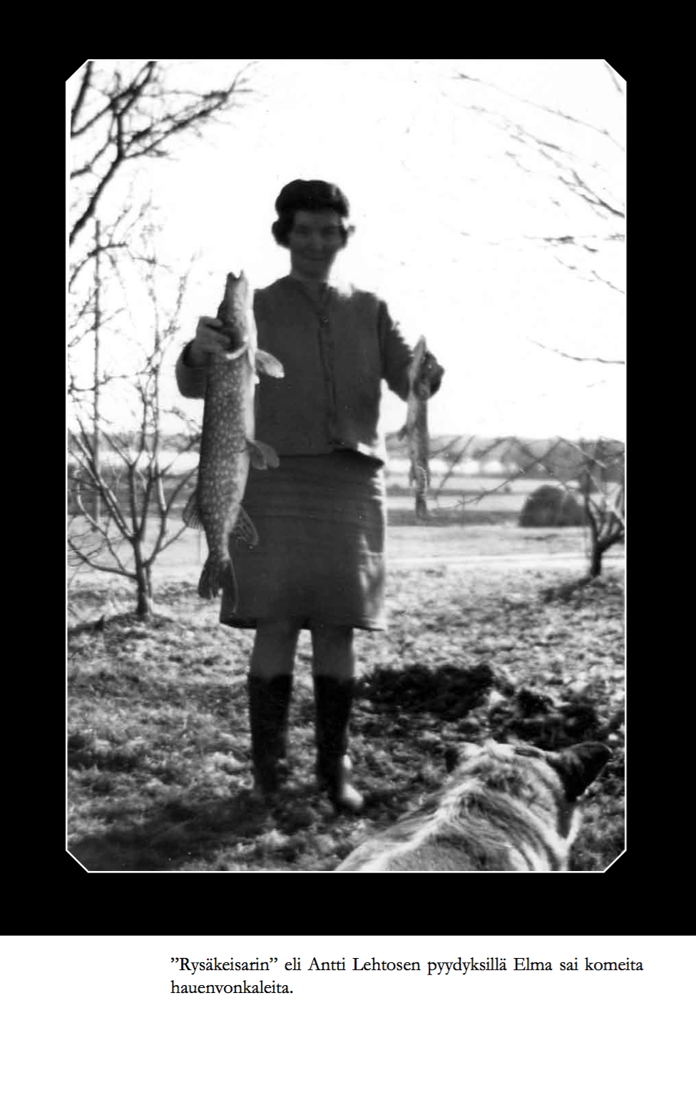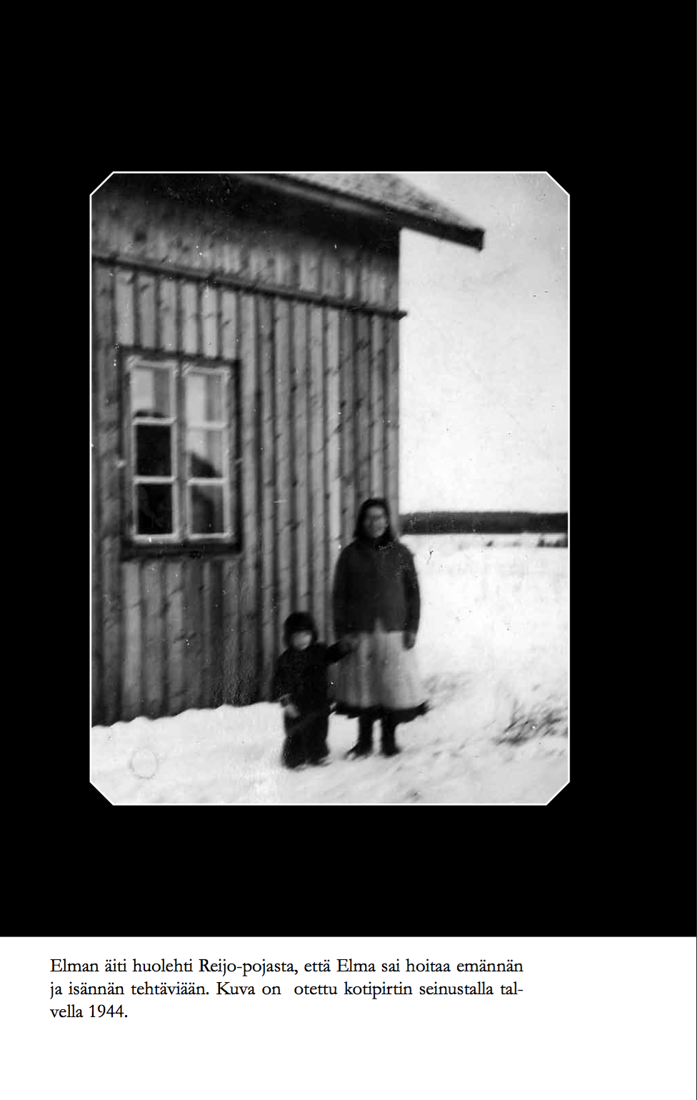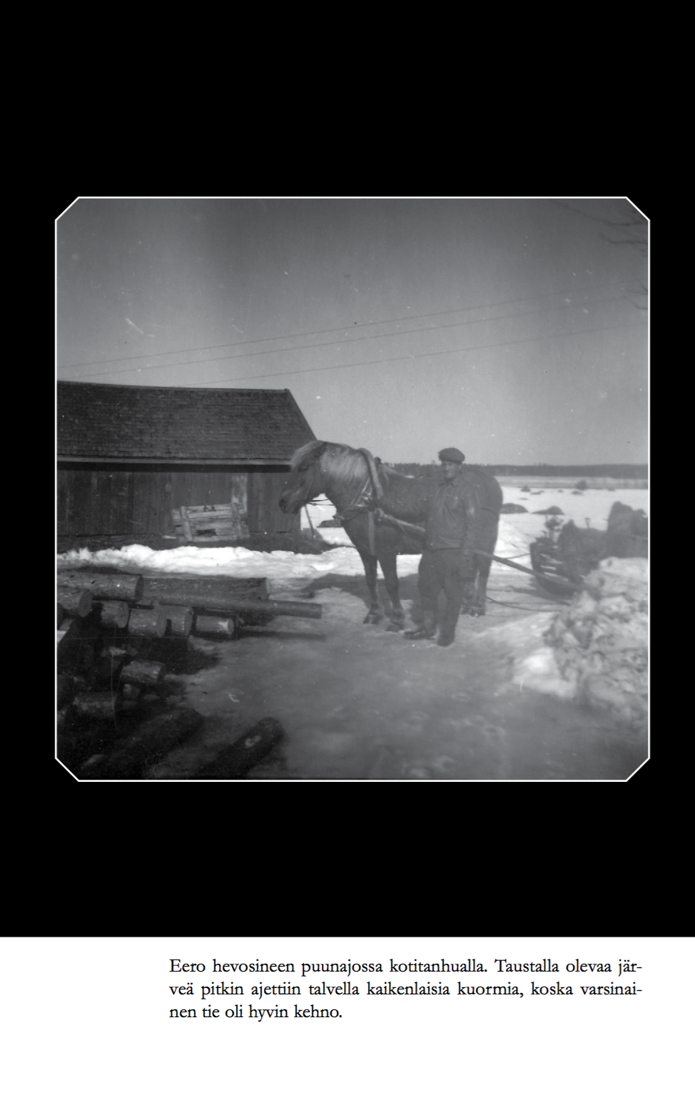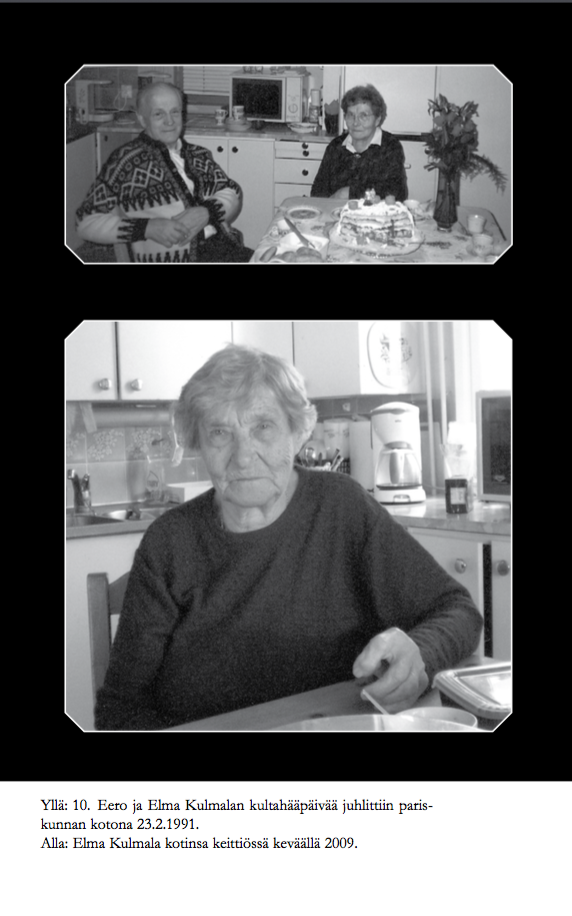Tunteen palo
Kirsti Vesterbacka: Tunteen palo. Nuorenparin sotavuodet. (Kustannusliike Warelia.)
Loppuunmyydyn teoksen e-kirjaversio vain hintaan 2,90 euroa. Maksettuasi voit ladata kirjan pdf-tiedoston ja lukea sitä esim. tietokoneella, tabletilla tai puhelimella.
Nuoripari ja sota. Lujan rakkauden seuralaisina alituinen ikävä, huoli ja pelko.
Lukemattomat suomalaiset aloittivat yhteistä taivaltaan viime sotien vaarojen ja vaikeuksien keskellä. Miltä tuntui elää avioliiton alkuvuodet erossa? Miltä tuntui miehestä ja miltä tuntui naisesta, kun työt kotona olivat kokonaan naisen harteilla? Miten puolisot tukivat toinen toistaan kenttäpostin välityksellä? Mitä sota teki rakkaudelle?
"Tunteen palo" kertoo näistä koetuksista yhden tavallisen parin tarinan. Kirsti Vesterbacka on koonnut Elma ja Eero Kulmalan kirjeenvaihdosta ja Elman haastatteluista vaikuttavan lukuelämyksen.
Kirjeistä ja muisteluksista rakentuu myös perusteellinen ja yksityiskohtainen kuva tyrvääläisen pientilan elämästä ja töistä 1940-luvun alussa.
Kirjan englanninkielinen arvostelu Goodreads-palvelussa:
*I really liked the book as a whole, getting to know Eero and Elma, and would have given this four stars if Eero's letters hadn't been that repetetive. Though this is only a minor complaint: when one sits in the army doing nothing and writes letters almost every single day, the letters are bound to be similar to each other. Truth be told, I only got bored of reading Eero's beginnings of the letters over and over again, since he rarely changed the wordings - otherwise, I read the letters gladly as they were, because they described the couple's life honestly. The letters and their tale also showcased really well what it was like to be a young woman/man in those times - Elma was only 17 when they married and had to take care of the fields and the house right away alone, while being pregnant at the same time. Phew, my hat's off to her! I'm actually rather sad that this hasn't been translated into English (yet?) as this would be a perfect example of a Finnish character. My grandparents had exactly the same kind of spirit and work ethic, the same principles and tendency to work through troubles and other emotions as Eero and Elma had.
I liked the two of them: Elma's story between Eero's letters proved her to have a good sense of humour, and Eero seemed to have a twinkle in his eye, too. They kept me interested in the story through the whole book, even when Eero's letters had little variation among them.
I'm glad that I read this and recommend this to all of those who like to read letters and are interested in war time love in 1930-1940's Finland.*
